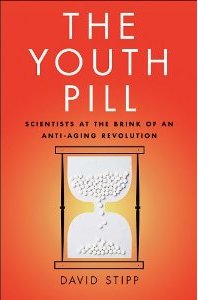August 19th, 2010 by Harriet Hall, M.D. in Better Health Network, News, Opinion, Quackery Exposed, Research
1 Comment »

On the car radio, I have several times happened upon “infomercial” programs touting the benefits of testosterone replacement therapy for men, broadcast by doctors who specialize in prescribing the drugs. They have lots of wonderful stories about men who feel younger, happier, and more vigorous because of their macho remedies. It’s a tribute to the power of the placebo.
I have been reviewing John Brinkley’s goat gland scam for a presentation on medical frauds. In an era before the isolation of the hormone testosterone, Brinkley transplanted goat testes into human scrotums in an attempt to treat impotence and aging. We are more sophisticated today — but not much. Longevity clinics and individual practitioners are offering testosterone to men as a general pick-me-up and anti-aging treatment. Their practice is not supported by the scientific evidence. Read more »
*This blog post was originally published at Science-Based Medicine*
July 17th, 2010 by Harriet Hall, M.D. in Better Health Network, Book Reviews, News, Opinion, Research
No Comments »

 Wouldn’t it be great if we could find a way to prolong our lives and to keep us healthy right up to the end? Ponce de León never found that Fountain of Youth, but science is still looking. What are the chances science will succeed? How’s it doing so far?
Wouldn’t it be great if we could find a way to prolong our lives and to keep us healthy right up to the end? Ponce de León never found that Fountain of Youth, but science is still looking. What are the chances science will succeed? How’s it doing so far?
In his new book The Youth Pill: Scientists at the Brink of an Anti-Aging Revolution, David Stipp tries to answer those questions. From the title of the book, I expected hype about resveratrol or some other miracle pill, but instead it is a nuanced, levelheaded, entertaining, informative account of the history and current state of longevity research. It makes that research come alive by telling stories about the people involved, the failures and setbacks, and the agonizingly slow process of teasing out the truth with a series of experiments that often seem to contradict each other.
Anti-aging can mean several things. Extending the average lifespan is not the same as extending the maximum lifespan. Extending lifespan is not the same as preventing the degenerative changes characteristic of aging. Read more »
*This blog post was originally published at Science-Based Medicine*



 Wouldn’t it be great if we could find a way to prolong our lives and to keep us healthy right up to the end? Ponce de León never found that Fountain of Youth, but science is still looking. What are the chances science will succeed? How’s it doing so far?
Wouldn’t it be great if we could find a way to prolong our lives and to keep us healthy right up to the end? Ponce de León never found that Fountain of Youth, but science is still looking. What are the chances science will succeed? How’s it doing so far?







